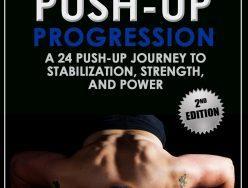X-Push Up
Foremost, how vital is proper push-up progression?
As I have written happily time after time — most clients can benefit from properly progressing their push-up because appropriate push-up progression provides: core stabilization, improved posture, increased power, extra endurance, stronger stability in your joints, more strength in their upper and lower body, increased muscle mass, and fat loss.
Additionally, mastering push-ups in terms of Stabilization, then Strength, to then graduate to Power is fundamental in achieving optimal core stabilization and movement muscles while building lean muscle by engaging the correct muscles. These phases cannot be skipped and shouldn’t be progress until each phase is truly mastered especially while using any equipment. In other words, a client should first progress accordingly using their own body weight before the usage of a Bosu, stability ball or another piece of equipment.

























